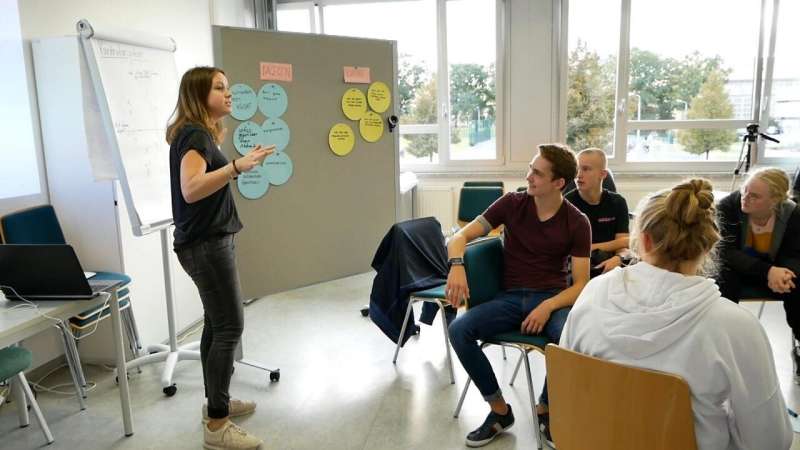
Ever faster, higher, further: The pressure on competitive athletes is enormous. They have to perform well enough to stay in the squad or to qualify for high-level competitions, such as the upcoming Olympic Games in Tokyo. Injuries and poor form are associated with a considerable rise in a certain risk—that of doping. For some time now, sports psychologist Professor Anne-Marie Elbe from Leipzig University has been conducting the No2Doping project with her working group. The researchers are investigating innovative ways to discourage young professional athletes from taking banned substances.
“The risk of doping is always there, especially in sports like cycling, track and field, or weightlifting, where strength and endurance are important,” said the expert. She pointed out that now, shortly before the Olympic Games in Japan, the situation is particularly difficult for top athletes: Due to the pandemic, many of them have been unable to train as planned because sports facilities have been closed, with many competitions and training camps canceled altogether. In addition, there were hardly any doping controls during lockdown—a factor which, Professor Elbe suspects, some athletes may well have taken advantage of.
Unholy alliance between doping and elite sports
In most cases, athletes caught doping are those who, for financial reasons, do not have access to the latest technologies. Those who can afford to sometimes exploit such technologies to use substances that are not yet on the banned list and which cannot be proven by any test. “Diagnostics always lags behind here. It’s a race against time,” explained the sport scientist. Anyone who is actually caught risks an abrupt end to their sporting career due to long bans, high fines and the loss of sponsorship deals. Nevertheless, doping and sport—especially elite sport—are an omnipresent, unholy alliance.
No2Doping project teaches moral values
To prevent this from happening in the first place, on the No2Doping project Elbe and her colleagues are working on teaching and strengthening certain moral values among young athletes and discouraging them from getting involved in doping. “We want to equip them with the tools to deal with the issue of doping. For example, we discuss specific situations in which doping could play a role. This is a highly innovative approach,” said Elbe. Previous projects on this problem were mainly limited to imparting knowledge, for example on the dangers of doping, but this did not ultimately prevent many athletes from taking banned substances.
Source: Read Full Article